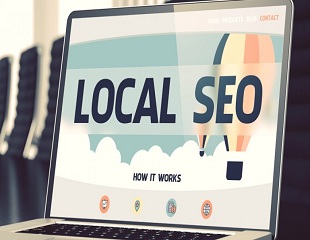Table of Contents
ToggleAs you all know that, we are living in the mobile era. These days, we do everything with the fullest assistance of mobile phones right from gaming to accessing internet for ecommerce sites. A report has been revealed that, more than 40% people want to complete their entire shopping on the mobile phones. If you have a local business or running a business at multiple locations, then your local presence is your key to attain success in your business. You really cannot ignore the local SEO.
The Local SEO Plans will help people find the relevant information about your business regardless of the location. This is why you are asked to know about the local SEO strategies.

1. Create Location Pages
If you really want to optimize your site, then you should not include all your multi-locations business related information in one master landing page. This is the costly mistake that most businesses do.
No matter, how many business locations you have, but you need to create separate business location page for all your business locations.
These details should not be identical, including,
- Name, address and phone number of the location
- Location specific content including testimonials, staff information, news and more
- Am embedded Google Map
- Explanations of how and where to get your business, which includes location landmarks that Google can connect as entities
- Location specific comments and reviews from customers
- Location specific meta descriptions and title tags
- Images from inside your business and team people that work there
Consider your location pages as micro sites that you can expand to create relevant content. You can set up your URL structure like the following,
You should make sure to optimize your meta descriptions, content and title tags and more with location specific keywords. You should apply a local business schema markup to your each page, so that your business hours and other crucial details will appear in the search results.
Most importantly, you should make sure all these location pages are discoverable by Google. Google’s crawlers all the time are not able to locate a page that is only addressable via a search or brand locator on your site.
Letting Google finding your page is easy. All you have to do is to submit a sitemap once you have created your new landing pages. You can submit the sitemap using the free XML sitemaps.
In Google search console, you need to go to crawl then to sitemap, where you can find a button to submit your sitemap. Submitting a sitemap will be simple for Google to locate and index your pages.
2. Optimize your Google My Business Listings
If you did not yet have signed up in Google My Business, here is explained how you should create listings for individual business locations.
You should add the URLs for each of your location page to your business profile.
You should go behind the guidelines of Google to optimize each of your location pages. The guidelines of Google to optimize your location pages are as follows,
- Verify each location
- List accurate hours
- Manage and respond to reviews
- Add photos
You should as well as follow some important rules about multi-location listings, which are
- Name Consistency – listed names for each of your locations must be consistent
- Category Consistency – All locations should include at least one category that represents the business as a whole
3. Use Google My Business Insights
The new dashboard gives you valuable data that saves time when you have multiple locations to monitor, which are,
- Where customers view your business
- Customer actions
- How customers search for your business
You can get last three months’ data now in Google My Business.
4. Manage Your Citations
Google looks at how your phone number, address and name appear across the web without and with links to determine your ranking in local search. If your listings are not consistent, then it will hurt your SEO. Fix your business listing on these popular aggregators,
- Yelp
- Yahoo Local
- Bing Places
- Foursquare
- Yellow Pages
5. Build Links to Each of Your Location Pages
You can build backlinks to your location page to improve your ranking. You can build backlinks by the following ways,
- Become a sponsor
- Start content marketing
- Host events
- Host meetups
- Event sponsorship
6. Manage Reviews
You should manage the reviews for each of your business location pages, as that is the key to your success. You should also manage negative reviews by,
- Responding quickly to the reviews
- You should use the language that would not be reckoned as inflammatory
- You should not blame the customer at any point
Include calls-to-action on your location pages and physical business locations to encourage customers to leave reviews.


